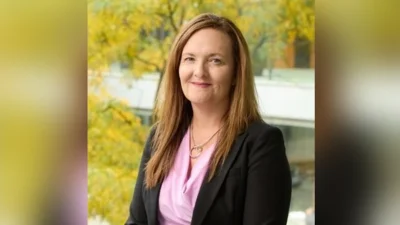University of Richmond issued the following announcement on July 16
The University of Richmond was among more than a dozen colleges and universities to take to the streets across Virginia July 15 as part of the largest heat-mapping study of its kind ever conducted.
Richmond’s research team was led by UR’s Todd Lookingbill, associate professor of geography, the environment, and biology. The goal of the statewide project, dubbed Heat Watch, is to determine how heat varies across communities to understand better where residents are most at risk during extreme heat waves.
Data generated by this project will tie into many existing programs and initiatives in Virginia, including public health, energy efficiency, climate change mitigation, land use planning, equity and social justice, community partnerships, and student engagement.
Lookingbill and his students, Hector Gomez and Sarah Page Steffens, organized dozens of community volunteers to drive routes through different parts of the City of Richmond. They used specially designed thermal sensors attached to the cars to record air temperatures and humidity throughout the day during the hottest time of the summer.
“Our team is building on data collected during a previous temperature campaign in 2017, and that data is already being used by Richmond and in student-authored publications to help identify vulnerable areas in our community. These are targets for new trees, parks, and other cooling measures,” Lookingbill said.
New aspects of this study since the 2017 effort include the identification of areas in Richmond that are getting hotter or cooler, an increased focus on parts of the city that were previously underrepresented in the initial sampling, and a comparison of Richmond temperatures to those collected at the same time in cities across the Commonwealth. In addition to temperature, the UR team collaborated with Virginia Commonwealth University and the Science Museum of Virginia to measure particular matter and ozone levels, which are essential to examine patterns in air quality.
Additional project partners for the colleges participating in Heat Watch, all of which are part of the Virginia Foundation for Independent Colleges, include Capital One and the Virginia Department of Forestry.
Original source can be found here.


 Alerts Sign-up
Alerts Sign-up